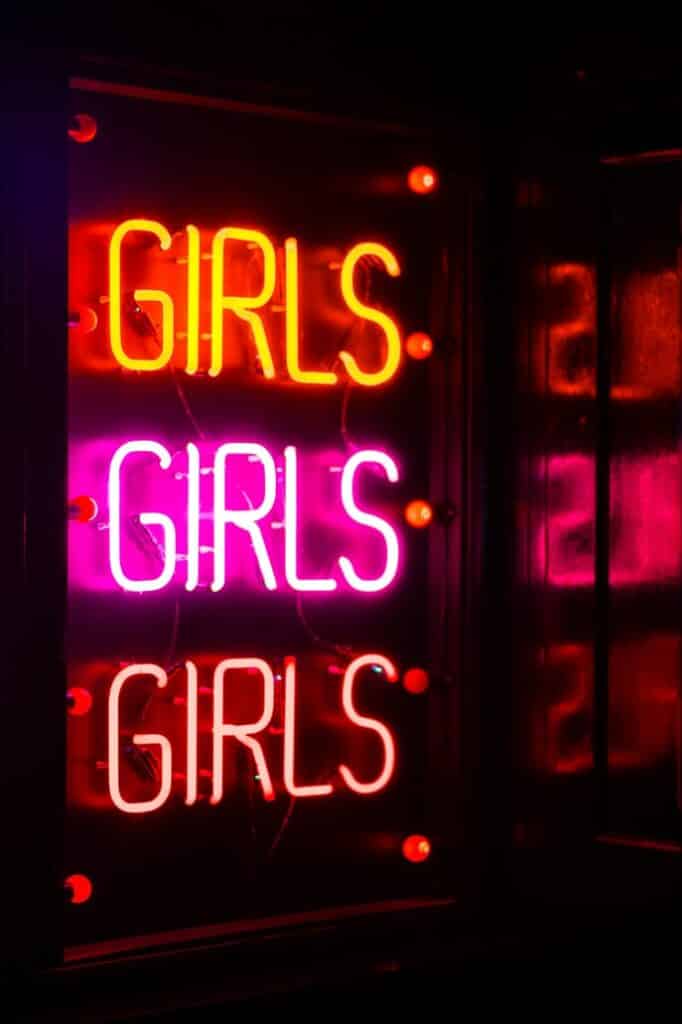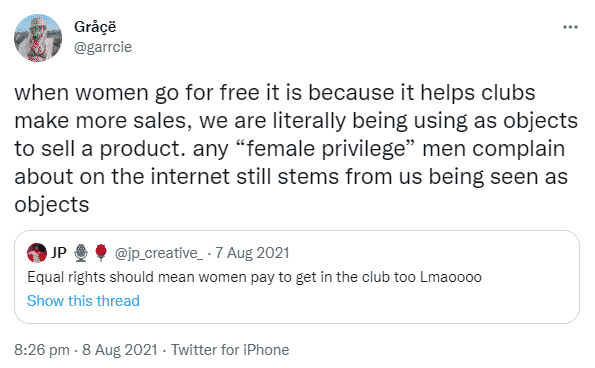- Advertise
-
Subscribe
The Ladies’ Night Phenomenon

Ah, Ladies’ Night. The girls get free entry, free drinks, and free unsolicited advances.
Men pay double what they’re usually supposed to and are expected to splurge on cocktails as some form of mating call. Sounds lovely, doesn’t it?
This age-old concept has always been the subject of controversy. Over the last few decades, it has received a lot of backlash since it has been called out as a sexist marketing ploy.
As a matter of fact, Ladies’ Night is illegal in the UK. In relation to the Equality Act 2010, it is forbidden for any business in England, Scotland, and Wales that provides goods, facilities, and services to discriminate against someone because of specific protected characteristics.
These include age, sex, gender, sexual orientation, and religious beliefs.
Regardless of this, clubs and bars across the UK are fellow members of this illegal tactic. The practice is also condemned in the USA. However, the rules around it vary from state to state.
Ladies’ Night is prohibited in the UK – yet bars and clubs still run this illegal tactic.
The practice has been defended as a transparent marketing strategy.
It’s all about the two-sided market of the nightlife industry. These businesses target the two distinct audiences of men and women as separate consumers. They know it’s more complicated than ever to motivate female customers to attend their venues. It is a double-edged sword because the number of male customers will depend on whether or not there will be women there.

Because of this, the Ladies’ Night strategy is often implemented. Prices are reduced (or eliminated) for the hard side, which directly translates to more uptake by both sides.
But many men feel discriminated against in this equation.
As one Reddit user on the r/MensRights forum expressed in a post: “How is it legal to have separate pricing based on gender. I understand clubs don’t want a sausage fest with all men, so they charge men more, but just because it makes business sense doesn’t mean it’s fair or should be legal.”
“The whole club scene is designed to extract money from ‘thirsty’ dudes”, a commenter responded.
Let’s just consider what extracting money from thirsty dudes actually means. Ladies’ Night events profit off of the hunt for hook-ups.
This not only puts men at a financial disadvantage when they want to go out, but it also places women as objects rather than people.
It’s one thing to pay promoters to get customers into your club. But some club-goers might not consent to be used as a promotion tactic in exchange for free entry or cheaper drinks.
The Catcall Collective on Instagram recently shared a post condemning the idea that promotions similar to Ladies’ Nights are a female privilege. The tweet responds to another user claiming that “equal rights should mean women pay to get into the club too”.

The posts’ comments seem to agree. “Yep. We’re being used as bait – that’s not privilege”, the top comment said.
Another user agreed: “Clubs would be fun if there weren’t men twice my age constantly trying to get in my pants when all I’m there for is to dance god dammit.”
If this privilege is more of a curse than a blessing for women and men aren’t too happy about it either, why does the phenomenon of Ladies’ Night still have such a hold over the clubbing world?
The club will never blatantly promise these women to the guys at the door. But they’re still the bribe being used to lure them in. Usually, men will be willing to pay more because there’s a promise that they’ll end up getting lucky.
The objectification of women makes them feel like they’re there for one reason and one reason only.

“Yep. We’re being used as bait – that’s not privilege.”
Now you have two unhappy parties in your club – women who feel like their night is ruined by men swarming around them trying to pick them up and men leaving disappointed at their unrealistic expectations.
One thing to mention is that in the global context, the practice of Ladies’ Night is different based on culture.
In countries like the United Arab Emirates, gender-targeted events are still very much legal – and actually quite celebrated by their female customers.

Ladies’ Nights have morphed into a staple event for many bars, clubs and restaurants in Dubai and Abu Dhabi. Even places like movie theatres and themed parks have taken up the trend.
In a country where women-only subway carts exist as a measure to decrease sexual harassment, it seems less likely that Ladies’ Nights profit off of using women as bait. It is more of an actual incentive to target an existing market.
Even in their promotional tactics on social media, many of these places seem to target women only.
“Bring your sisters, mothers, and best friends out for a treat,” reads one of the captions promoting a Ladies’ Night at a prestigious restaurant.
In certain countries like the United Arab Emirates, gender-targeted events are still very legal – and actually quite celebrated by their female customers.
Ultimately, the bad rep that Ladies’ Nights get is less about the practice itself and more about its motivation.
If the promotion is there to motivate women to gather together in a safe space, then great. But if it’s there to lure them as bait for men who pay double to get the chance to hit on them, then that’s a no-go.






